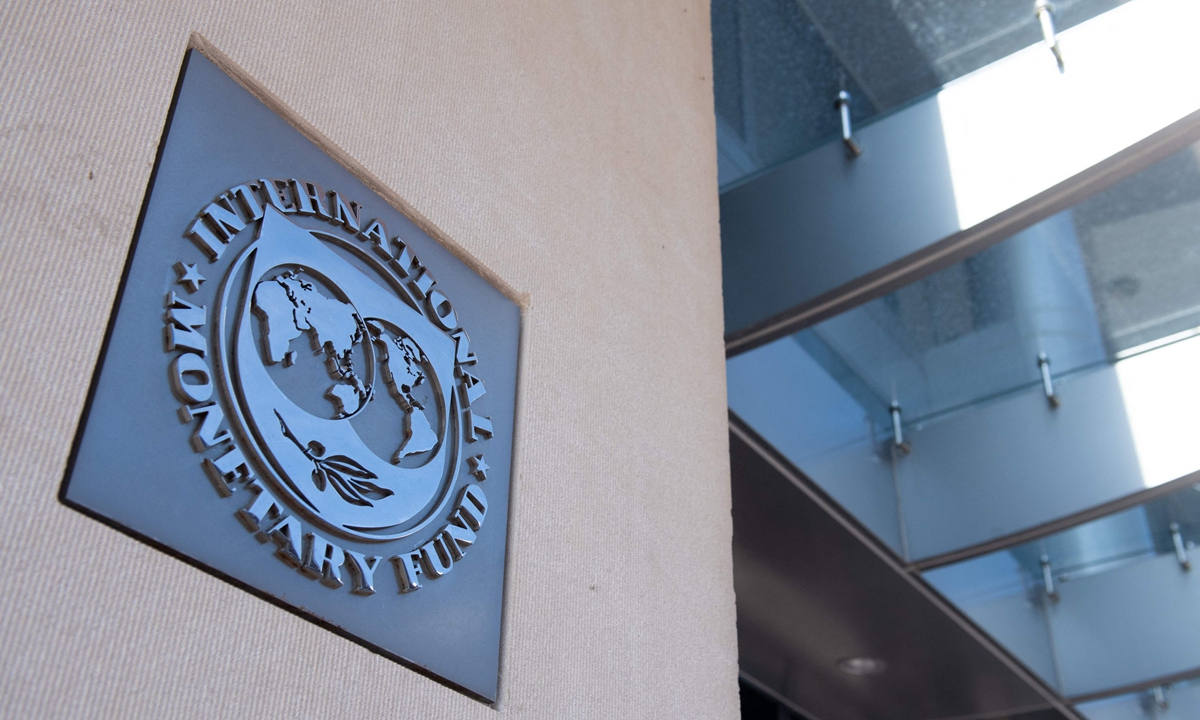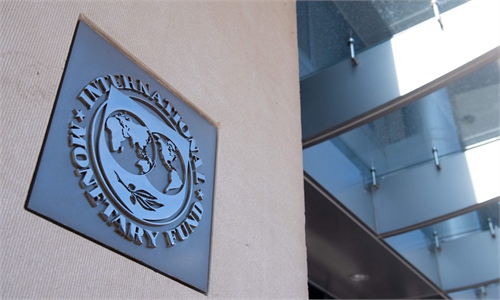China-IMF cooperation benefits international community in tackling global challenges: Chinese Premier

A sign is seen outside the headquarters of the International Monetary Fund (IMF) in Washington DC, the US, on April 15, 2020. Photo: VCG
In the face of the current complex international and regional situation, the cooperation between China and the International Monetary Fund (IMF) is in the interests of both sides and the interests of the international community in jointly addressing global challenges, Chinese Premier Li Keqiang said on Wednesday.
Li made the remarks in a phone call with Kristalina Georgieva, managing director of the IMF, at the latter's invitation on Wednesday.
Li stressed that China is willing to play a constructive role in resolving the debt issue of relevant countries within a multilateral framework, and called for all parties to take joint actions and share the responsibility fairly in helping low-income countries overcome economic difficulties.
China's economic growth is stabilizing and picking up, and there is broad space for future development, Li said.
Li noted that China's economy maintained steady growth last year and warded off inflation, with the consumer price index rising by only 2 percent against the backdrop of high global inflation.
In the past three years since the outbreak of COVID-19, China's economy has grown at an average annual rate of 4.5 percent, higher than the world average, and is now bouncing back steadily, Li said.
Georgieva said China's economy has performed well recently, adding that it has made positive contributions to world economic development and will continue to be a major driver of world economic growth.
In anticipation of a strong rebound of China's economy, the IMF recently lifted its projection for China's economic growth to 5.2 percent this year.
China has been doing a good job in curbing inflation, thanks to the scores of consistent and effective government measures in place, said Dong Shaopeng, a senior research fellow at the Chongyang Institute for Financial Studies at Renmin University of China, on Wednesday.
Specifically, control measures have been adopted in both domestic spot and futures markets in a bid to curb market speculation and hoarding. This has effectively reined in price surges in areas from daily commodities such as pork to bulk commodities like electricity, Dong said. This policy has been consistent even during the epidemic.
"Financially, we have resolutely refrained from using a deluge of stimulus policies, and insisted on appropriate and sufficient long-term measures for money supply, which also allows us to effectively control inflation," Dong said.
More importantly, the production resumption efforts have also played an important role in stabilizing and securing good supplies for responding to the demand, experts said.
"Because we have done a good job in managing domestic inflation, we have also stabilized the prices of our home-made products instead of exporting inflation abroad," Dong said, indicating the contribution that China has made in helping to ease global inflation.
China's economy is set to rebound this year as mobility and activity pick up, providing a boost to the global economy, the IMF said in its report in February, projecting that the Chinese economy will contribute a third of global growth this year.
Georgieva said the IMF appreciated China's positive and constructive attitude and efforts to support developing countries in addressing the debt crisis and it is willing to strengthen coordination and cooperation with China on this issue.

